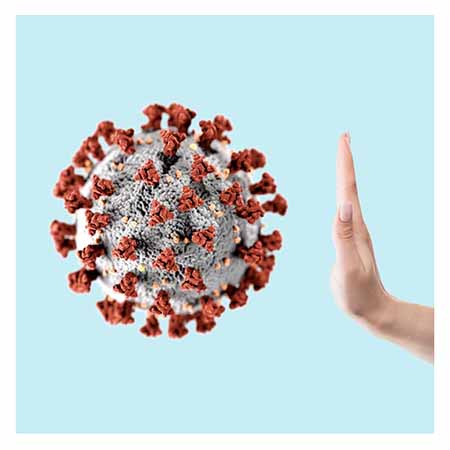The Landscape of Otolaryngology during the COVID-19 Pandemic
 Memorial Hermann-Texas Medical Center (MH-TMC) and UTHealth Houston continue to be on the forefront of care during the COVID-19 pandemic. The medical center’s otolaryngology specialists have been among the most critical divisions in the care of COVID-19 patients during the height of the pandemic.
Memorial Hermann-Texas Medical Center (MH-TMC) and UTHealth Houston continue to be on the forefront of care during the COVID-19 pandemic. The medical center’s otolaryngology specialists have been among the most critical divisions in the care of COVID-19 patients during the height of the pandemic.
As a result of the COVID-19 pandemic, otolaryngology specialists noted a change in the types of ear, nose, and throat (ENT) issues seen among hospitalized COVID-19 patients. Typically, consults for epistaxis are considered routine care. However, during the COVID-19 pandemic, specialists observed a change in the severity of epistaxis among COVID-19 positive patients. Epistaxis occurred more frequently and more severely in COVID-19 patients when compared to patients who did not have COVID-19. In response to increased need for interventions to treat conditions such as epistaxis, UTHealth Houston’s ENT specialists, affiliated with MH-TMC, decided to initiate a research study to systematically look at all types of ENT consultations among all MH-TMC inpatients to better prepare physicians for subsequent COVID-19 care.
Amber Luong, MD, PhD, is the lead author on the study titled, Otolaryngology Consultations for COVID-19 Patients: Indications, Interventions, and Considerations. Dr. Luong and her colleagues conducted a retrospective study of inpatients at MH-TMC who received in hospital otolaryngology consultations over a six-month period during the early phases of the COVID-19 pandemic. ENT interventions and outcomes were compared between patients positive for COVID-19 and those negative for COVID-19. As noted by Dr. Luong, “[t]his study highlights the benefits of multidisciplinary care of patients. The ENT staff were able to identify a complication of anticoagulation treatment that is typically considered a minor side effect, when observed from a single patient’s perspective. However, from our ENT perspective, the amalgamation of data from all patients being seen for epistaxis underscored the severity and frequency of this complication of routine anticoagulation.”
Key findings include:
- Among COVID-19 patients, bleeding was the most common reason for requesting an ENT consultation when compared to reasons for ENT consultations among patients without COVID-19.
- Epistaxis in COVID-19 patients who often required multiple interventions was typically more severe than in other patients.
- COVID-19 patients were often anticoagulated, and thus were at higher risk for severe epistaxis.
Evidence informing care:
Evidence from this study has altered treatment protocols for patients who are in critical condition due to COVID-19. Dr. Luong’s study highlights epistaxis as a complication of anticoagulation for the treatment for COVID-19. To date, the therapeutic practice of anticoagulation for treatment of severe COVID-19, remains an area of active investigation as positive effects on survival remain unclear.